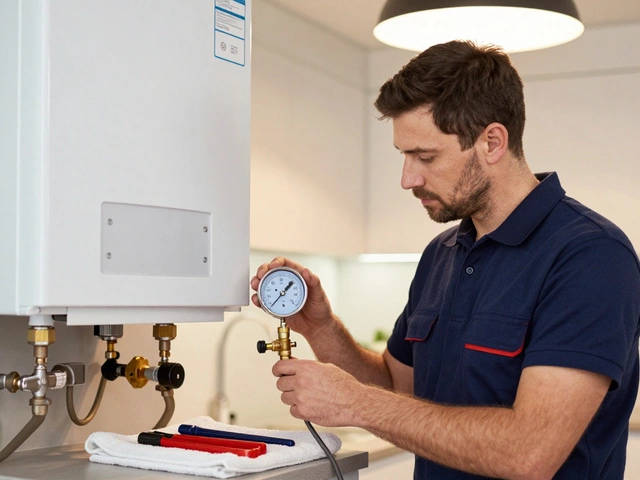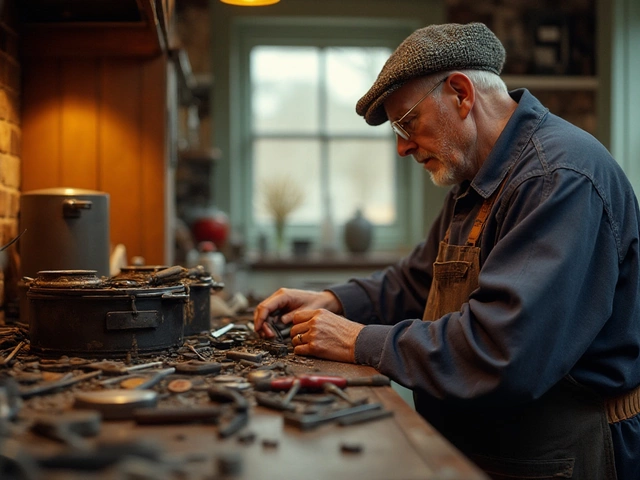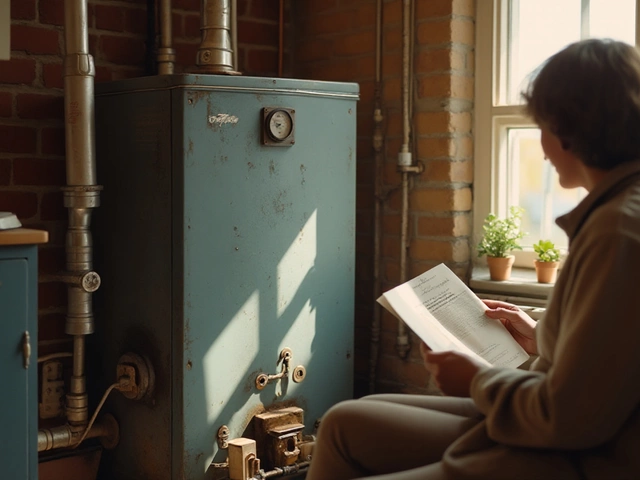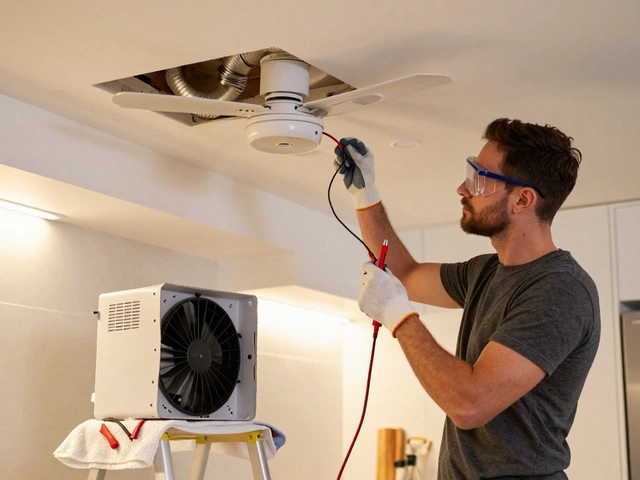Water heaters play a crucial role in our homes, providing the comforting hot water we rely on daily. Yet, like all household devices, they aren't immune to the occasional hiccup. When a water heater fails, it can wreak havoc on our routines and comfort.
Why do these household heroes falter? The answer often boils down to familiar foes like sediment build-up and faulty thermostats. In this article, we journey through the central causes of water heater failure, exploring warning signs you shouldn't ignore and the preventive steps that can save you from cold showers. Whether you're a seasoned DIYer or a cautious homeowner, there's a wealth of practical insights here to help you navigate maintenance and troubleshooting with ease.
- Common Causes of Water Heater Failure
- Signs Your Water Heater Needs Attention
- Preventive Maintenance and Tips
- DIY Troubleshooting and When to Call a Pro
Common Causes of Water Heater Failure
Water heaters are essential, yet, like any key appliance, they can be prone to glitches if not properly maintained. While these devices are generally robust, their efficiency can be affected by several factors, with sediment buildup being a leading villain. Over time, minerals naturally found in water, particularly in areas with hard water, begin to settle at the bottom of the tank. This accumulation creates a barrier between the burner and the water it needs to heat, leading to inefficiency and increased energy bills as the heater struggles to perform its job. Left unchecked, sediment can cause tank corrosion, ultimately leading to leaks and the need for replacement.
Another common issue is the failure of the thermostat, the component that regulates the water temperature. When the thermostat is defective, you'll likely see water that is either too hot or not hot enough. These wild temperature fluctuations aren't just inconvenient—they can signal that the thermostat needs immediate attention. Sometimes, the thermostat might need a simple reset, but other times a complete replacement is necessary.
The heating element, often the unsung hero of the water heater, also deserves attention. Electric water heaters rely on one or two heating elements to warm the water, and these can suffer burnout due to mineral deposits or age, rendering them ineffective. In many cases, a burned-out element can be replaced without enduring the cost of a new heater.
Corrosion is another bane of water heaters, particularly affecting units that have been neglected or poorly maintained. Sacrificial anode rods, designed to attract corrosive materials, should be replaced periodically. If left unchecked, rust can run rampant on the interior of the tank, significantly reducing the lifespan of your water heater.
"Ignoring routine maintenance is like gambling, and most homeowners end up losing," says Pete Collins, a plumbing specialist with over three decades of experience.
Additionally, one cannot overlook pressure and temperature relief valve issues. This valve is a critical safety feature, discharging water when the tank becomes over-pressurized or overheated. If it fails, the risk of tank explosion increases. Sediment, corrosion, or a malfunctioning valve could lead to its failure. Listening for water-like sounds such as popping or rumbling can also indicate accumulating sediment or a faulty valve.
Last but not least, older models often encounter problems with dip tubes. These tubes direct incoming cold water to the bottom of the tank. When they break or wear out, cold water may flow into the hot water lines directly, causing lukewarm outputs and inefficient heating cycles. If you're handy with tools, you can replace the dip tube yourself, but in some cases, professional assistance may be necessary.
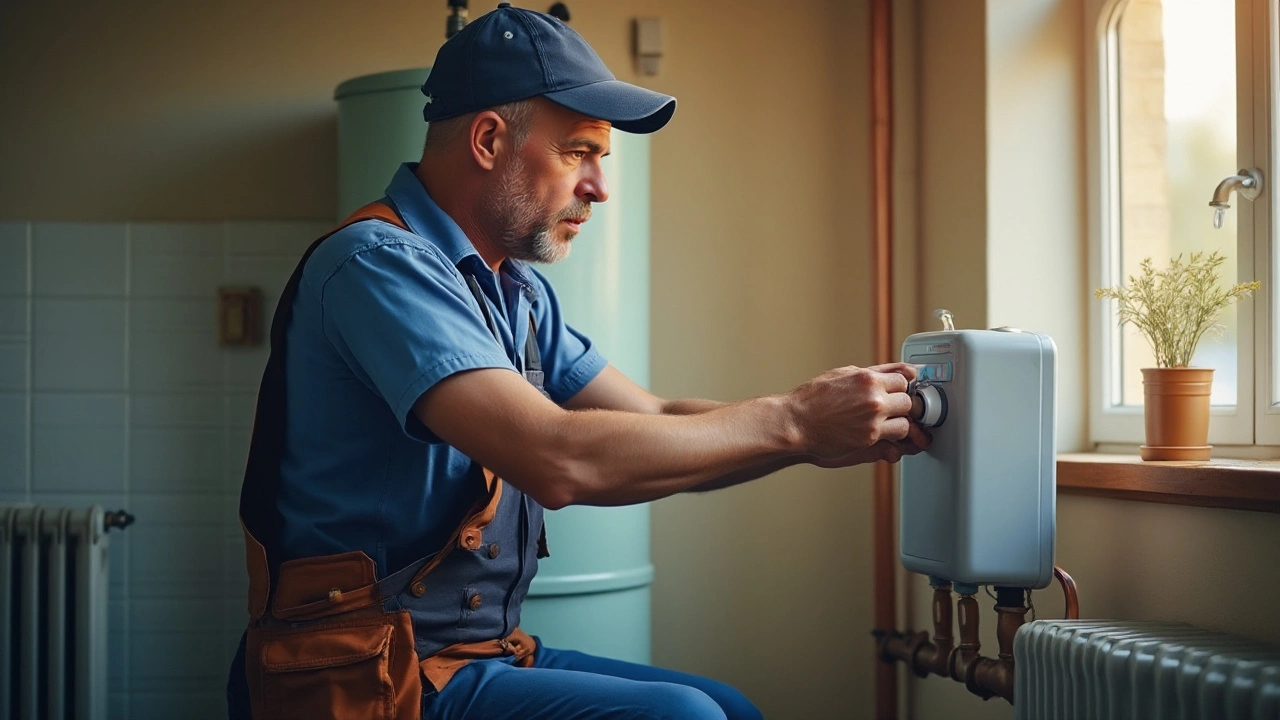
Signs Your Water Heater Needs Attention
A water heater might be one of the unseen heroes in your home until it starts giving hints that something isn't quite right. Noticing these signs early can be a game changer in preventing larger and more costly issues down the line. For starters, if you find that the water isn't as hot as it used to be, it may not be your imagination. This can indicate a problem with the thermostat or a heating element that is no longer functioning at its best. Additionally, if you hear strange noises, like popping or banging from the water heater, these are likely due to sediment build-up. Over time, minerals like calcium and lime settle at the bottom of the tank and start causing noise as the water heats up and steam pushes through the sediment layer. This isn't just a nuisance; it can lead to inefficient heating and eventual damage to the tank.
Another telltale sign that your water heater might need attention is leakage. Even a small puddle beneath your water heater could spell trouble. It indicates that the water pressure inside the tank is too high or that there's a crack or corrosion inside the tank itself. Keep an eye out for rust-colored water, which suggests that corrosion is making its way into your water supply. A regular water heater flush can sometimes clear rust and sediment, but persistent rust might mean it's time to think about getting a new heater. If you suspect more than just a minor issue, don't hesitate to call in a professional to assess the situation before it escalates.
It's also beneficial to monitor the time it takes for hot water to recharge. If you're suddenly running out of hot water faster than usual, there could be a variety of underlying causes affecting both tanked and tankless systems. The pilot light of gas heaters should be steady and blue—any flickering orange flame could mean there's excess air in the system, requiring immediate attention. Troubleshooting these signs can often lead you straight to the solution, but without timely intervention, minor issues could turn into major repairs or even replacement.
John Smith, a plumbing expert, once shared, "Regular maintenance isn't just for big companies; your home appliances need it too. A small hour every year can save hundreds." Taking a proactive approach by conducting regular inspections and maintenance can extend the life span of your water heater significantly.
The symptoms of a failing water heater aren't limited to noise and visible leaks. Look out for inconsistent water temperatures, particularly if they vary throughout your house. Fluctuations can often be tracked back to the thermostat, which might need just a simple adjustment or a full replacement in more serious cases. Keep watch for standing water or dripping from the unit itself, which can accelerate the damage, especially if left unnoticed in a garage, basement, or crawl space. Implementing a routine 'health check' can catch many of these intricacies and treat them before transforming into costly calamities.

Preventive Maintenance and Tips
Ensuring the longevity of your water heater takes a good mix of routine care and attentive observation. The key to a healthy water heating system lies in understanding its delicate ecosystem and addressing issues before they boil over into significant problems. First, it's vital to recognize that sediment build-up is one of the primary challenges. Regular flushing of the tank is crucial because sediment can settle at the bottom, impacting efficiency and leading to a complete water heater failure. Aim to perform a tank flush at least once a year – a practice that's both simple and highly beneficial.
Performing a visual inspection of your water heater every few months can also pay dividends. Look for any signs of rust or leaks, whether lurking at the connections or appearing at the base of the tank. Catching a leak early can save you from potential water damage and high repair bills. Your household plumbing should include a temperature-pressure relief valve test as part of its upkeep. This valve acts as a safety feature, and verifying its function ensures excess pressure can escape, averting potential bursts.
Regularly setting the thermostat to a recommended 120 degrees Fahrenheit can strike the right balance between comfort and energy-efficiency. This setting not only prevents scalding but also diminishes unnecessary energy consumption. Remember, heating water accounts for nearly 18% of a home's energy use according to the U.S. Department of Energy. Imagine the savings realized with a performing system operating at optimal efficiency!
Insulating your water heater and its pipes is another strategic move in the realm of maintenance tips. By reducing heat loss, insulation helps maintain a consistent water temperature, which means the unit doesn't have to work around the clock. Be mindful when insulating any part of your system, especially if it's a gas heater, as you want to avoid covering the top, bottom, or the venting system completely. This tip is key to troubleshooting potential issues.
"An ounce of prevention is worth a pound of cure," said Benjamin Franklin, and that maxim rings particularly true when it comes to keeping your water heater in good working condition. A few careful measures today can avert a cascade of problems in the future.
Lastly, for those not wanting to dabble in handy work, scheduling periodic professional inspections is an effective way to maintain high performance without lifting a finger. Experts can spot issues not immediately visible to homeowners and offer comprehensive solutions. Whether going the DIY route or calling in the reinforcements, staying proactive is the golden rule to follow when it comes to water heater care.
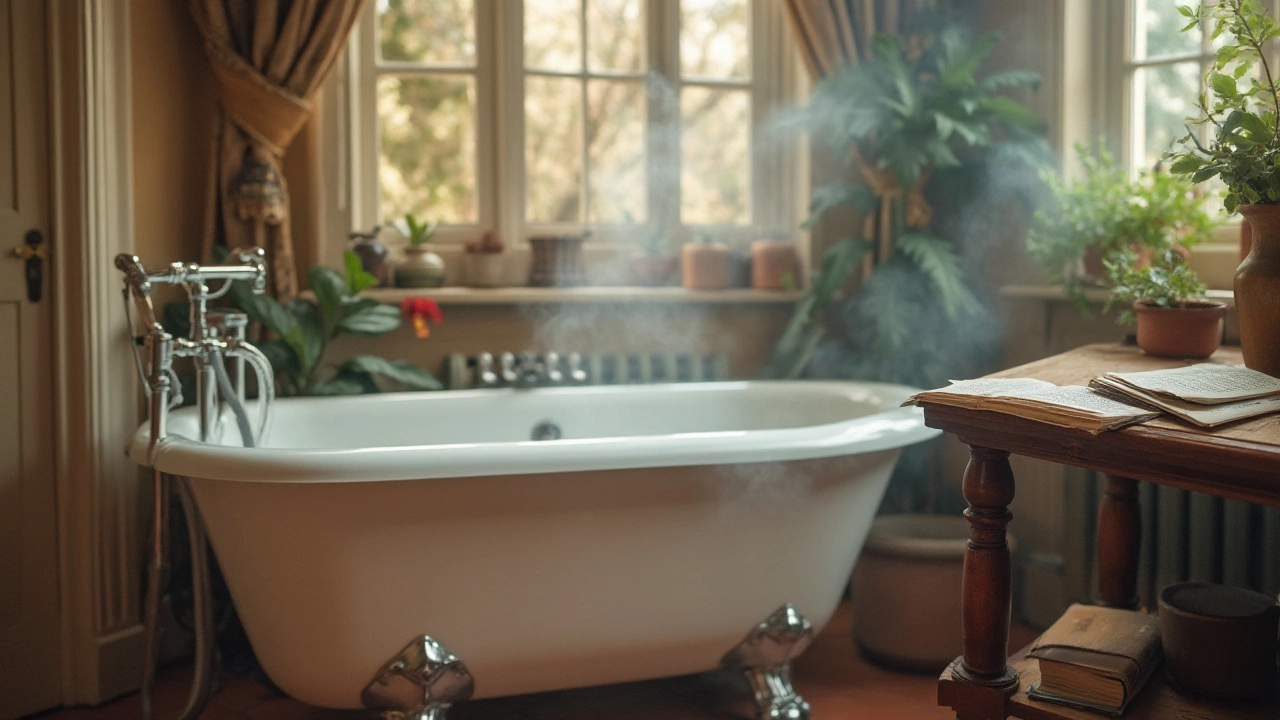
DIY Troubleshooting and When to Call a Pro
It's quite exasperating when your trusty water heater suddenly refuses to cooperate. While it might be tempting to grab the phone and call a professional immediately, some issues can be tackled with a little know-how and patience. Let's explore how you can troubleshoot common problems yourself before reaching out for expert help. Understanding basic mechanics and addressing potential issues early can be both gratifying and cost-saving.
Start by checking if the problem is related to power or gas. For electric units, ensure the breaker hasn't tripped. You’d be surprised how often flicking a switch can restore your hot water supply. For gas models, inspect the pilot light. If it’s out, relighting should be your first step. But if it keeps going out, that’s your cue to seek professional help. Don’t overlook minor inconveniences like varying water temperatures. This can often be attributed to a faulty thermostat, which can be adjusted or replaced with straightforward instructions. Dive deeper, and sediment buildup emerges as a common foe. Flushing your unit might sound daunting, but with a garden hose and clear steps, it's manageable. Sediment can cause clogs and inefficient heating, turning a simple task into an annual chore can work wonders.
Now, let's talk about leaks. Locating the source can be tricky. Check connections, valves, and the water tank itself. Tightening fittings might solve minor drips, but if water gushes out, it’s time to wave the white flag and call in the pros. Even a small leak can quickly morph into a costly and damaging problem if left unchecked. If issues persist, the root cause might be elusive. Faulty internal parts or aging components could be the culprits. Unless you're ready to roll up your sleeves and dive into more complex mechanics, professional assistance is recommended. A professional not only fixes the problem but can offer insightful tips on improving efficiency and extending the heater's life.
Renowned plumbing expert John Carmichael once said, "A well-maintained water heater doesn't age; it matures." This rings true, as regular care can stave off bigger repairs or replacements.
Knowing when to summon a professional can save you time and stress. Certain red flags signal that it’s time to step back and let a licensed expert handle the situation. Complex electrical issues, persistent leaks, or a heater that simply doesn’t heat anymore are strong indicators. Consider the age of your water heater; units generally have a lifespan of 8 to 12 years. If yours is approaching these golden years, replacement might be a more viable option than constant repairs. Remember, a seasoned professional brings in valuable experience and tools to safely navigate hazardous terrain. Prioritizing safety and efficiency should always be your first concern.




